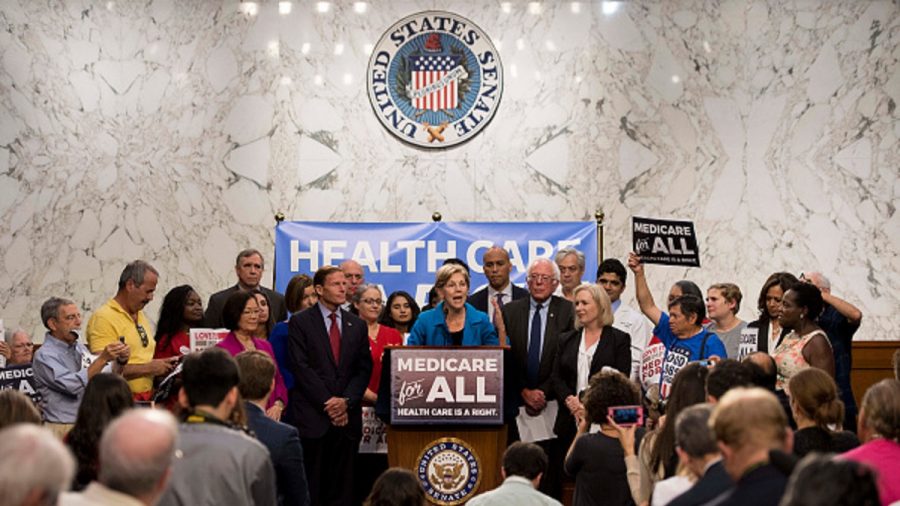Just 13 percent of Americans would support the idea of “Medicare for All” if the proposal, as it is currently written, terminated the private health insurance industry, according to a survey by The Hill and HarrisX published on Feb. 7.
“Medicare for All” is a socialist policy proposal that would transition the United States health insurance industry to a single-payer system where the government is the sole insurance provider. The policy is being promoted by the Democratic Socialists of America. In 2018, a total of 124 House Democrats co-sponsored a Medicare For All bill.
Many Democrats who pushed for Medicare-for-All-style proposals on the state level balked after discovering the prohibitive cost of the legislation. A bill in North Carolina was killed after lawmakers were told it would cost $70 billion a year. Democrats in California pulled a similar bill after failing to find a way to fund the $400 billion price tag. Leftists in Vermont gave up on a single-payer bill after learning it would eat up 88 percent of the state budget.
Even Sen. Bernie Sanders (D-Vt.), a self-proclaimed socialist and the biggest proponent Medicare for All, admitted, “There will be pain” in footing the $1.4 trillion annual bill for a national Medicare-for-All system. Sanders’s proposal would eliminate the private health insurance industry with niche exceptions for covering procedures like cosmetic surgery. Sanders proposed raising taxes on individuals, employers, and the wealthy to cover the costs.

An independent assessment of the costs of Medicare for All by the left-leaning Urban Institute estimated that the proposal would cost $32 trillion over 10 years.
The same HarrisX poll found that 87 percent of Americans preferred a system that included some form of private health insurance.
Nearly 60 percent of the people surveyed support a universal healthcare system with either an option to opt out for private coverage or a right to purchase supplemental private health insurance. Universal coverage with a private supplement was the most popular of all the choices in the survey, with 32 percent of the people backing the option.
Meanwhile, 15 percent of people would remove the government from the health insurance industry entirely. Nearly as many, 14 percent, responded that they would keep the health insurance system as is.
“Folks are clearly saying the system is still sort of broken to some degree, but there isn’t a lot of consensus around how to fix it in one way or another,” Mohamed Younis, editor-in-chief of Gallup, told the Hill on Feb. 6.
There is disagreement about Medicare for All among Democrats. Among potential 2020 candidates, Sen. Sherrod Brown (D-Ohio) has argued for a partial expansion of the existing system. Meanwhile, Sen. Kamala Harris (D-Calif.) and Sen. Kirsten Gillibrand (D-N.Y.) have said that they are backing a single-payer option.

The price tag for Medicare for All is one part of why even Democrats find the plan hard to swallow. Socialized medicine all over the world has resulted in rationed care and long wait times.
The United States is already struggling to pay for the current Medicare system, which serves a portion of Americans. The federal government paid $700 billion for Medicare in 2017, up 65 percent from a decade ago. The costs are growing at nearly 5 percent a year and the Medicare fund is expected to deplete by 2026.
From The Epoch Times


